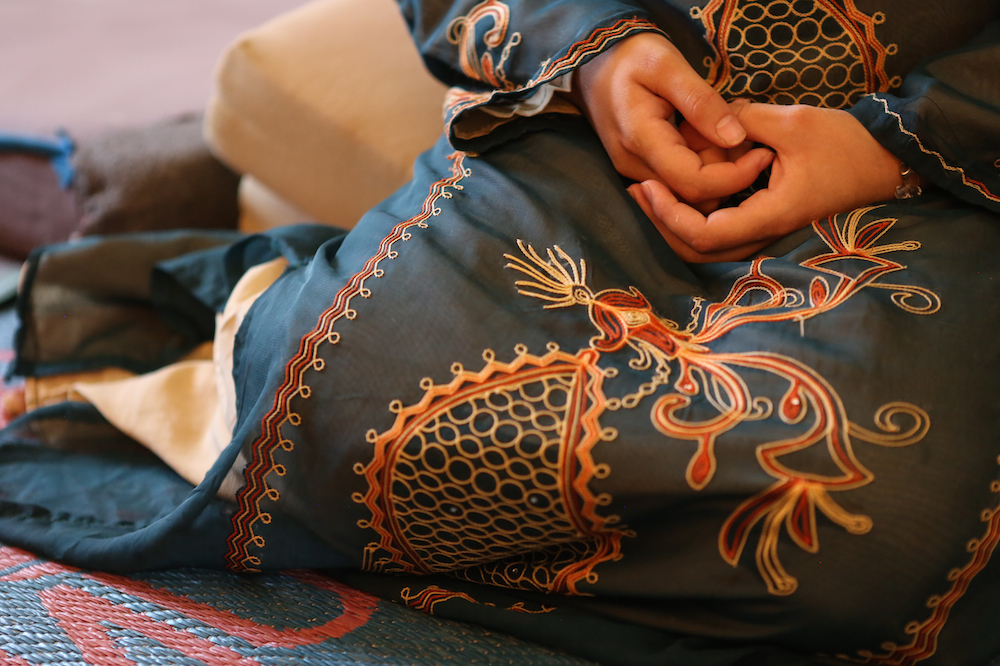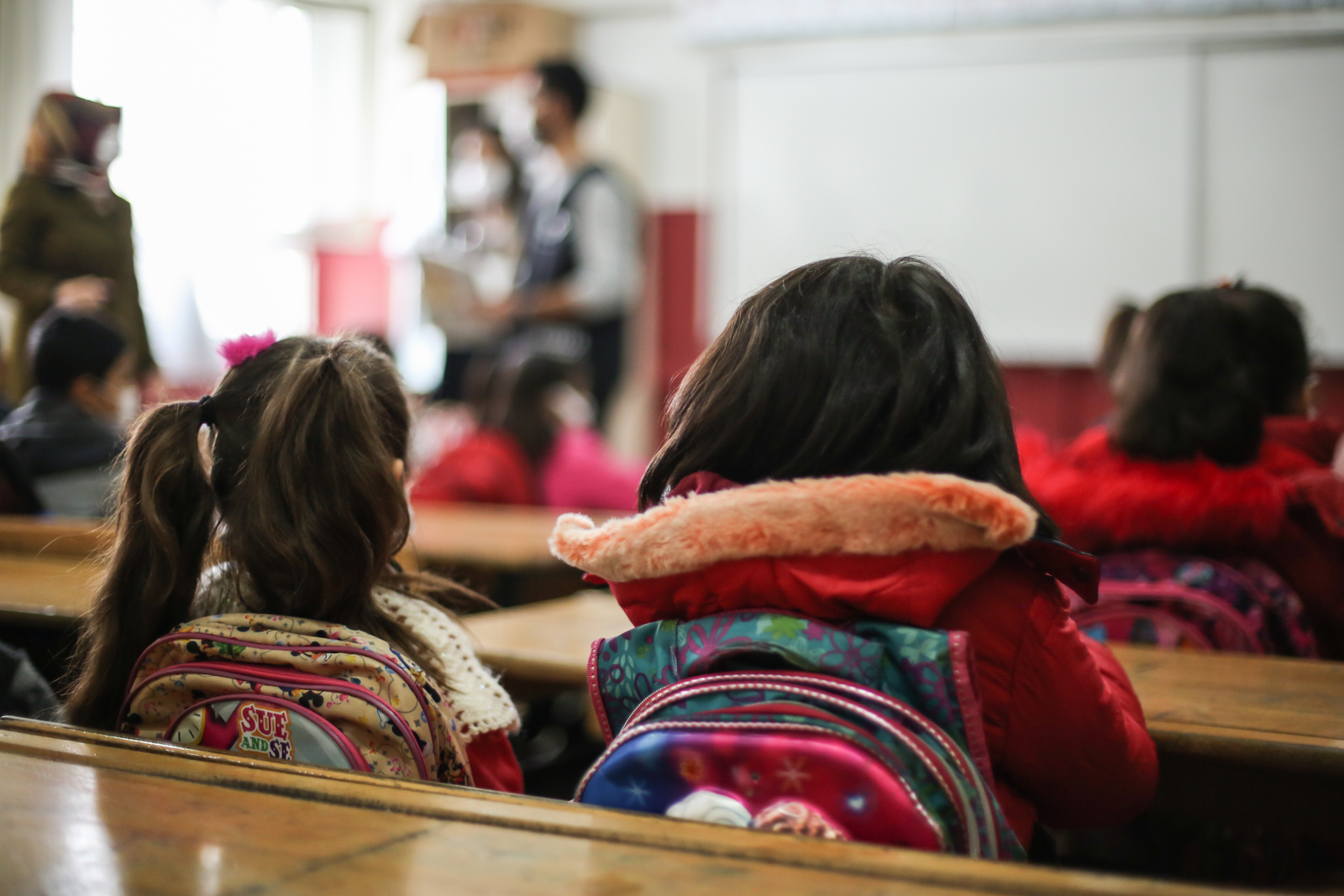
“Education is what makes people aware of the social evils in the world, including human trafficking”
Barriers to education, Child marriage, Child trafficking, Girls' education, Right to education
Anuradha Koirala has helped to rescue 12,000 girls from sexual slavery - and prevented another 45,000 from being trafficked. The 67-year-old founder of the charity Maiti Nepal was recently given the Padma Shri, one of India's highest civilian awards. She was also named a CNN Hero in 2010. India is home to 40% of the world's 46 million slaves. Former teacher Anuradha founded Maiti Nepal in 1993 and it now has a shelter in Kathmandu and 11 transit homes on the Nepal-India borders. It also runs training and counselling homes, two hospitals and a school for 1000 children. Anuradha spoke to Theirworld about the education elements of her work with trafficked girls.
What lessons did you learn as a school teacher that have helped your work with Maiti Nepal?
Being a teacher I was passionate about educating the girls, so until today I have been lobbying with the government. International NGOs fight for “compulsory, free, fine, able education”.
I have experienced that education plays a very important role in preventing trafficking and exploitation of girls and women.
How can education help to prevent girls from becoming victims of trafficking?
Based on official data, human trafficking all over the world occurs due to the lack of family education. Children and adults who are illiterate or uneducated are more susceptible for victimisation.
Education brings about enlightenment in people, it is a getaway from all the hardships in life.
It is what keeps people away from heading towards the wrong way and following the education line with the desire to know more.
Education is what makes people aware about all the social evils present in the world today, human trafficking being one of them.
Education not only makes people aware about the problem but it also lets people know the ways that we can take to prevent it from happening.
What can education do to help victims deal with their trauma after being rescued?
Education plays an important role in helping a survivor of human trafficking to get out of the trauma he/she is in.
Education and counselling are huge steps than can help in rehabilitating the survivors and re-integrating them into the society.
A survivor of human trafficking can be in serious trauma – but if the survivor is provided with education, he/she can get a chance to restart his/her life and try to divert his/her mind by gaining more knowledge through education.
Education of any form can be helpful, be it learning the basic life skills or specialisation. Also, an institution or a school is a useful place to communicate and socialise with others which will help them forget their mournful past.
How is education being used to help abused girls return to society and fulfil their potential?
To help a victim get away from the trauma she is in, she needs to get busy to move on with her life.
If she identifies her skill or an interest in something, she can be kept busy with it.
Education can help the survivor know her potential and identify her interests and skills. Once it is known, education or training can help her build her potential and be better at what she is interested in.
After learning skills, survivors can move forward in life and be re-integrated into society.

What can be done to educate boys about the rights of girls and women and prevent them from becoming the abusers or traffickers of the future?
An important step that can be made to prevent the boys from becoming abusers or traffickers in the future is by educating them about the rights of the girls and women and making them aware about gender equality.
The boys should be educated and make them aware that girls and women are human beings with feelings. They have their own rights and a respectful position in the society.
Educating the boys at an early age about the rights of the girls and women and make them aware that the opposite sex are not objects meant for flesh trade.
Is there one particular story that sums up how education can change the life of a girl who has been trafficked and abused?
Nami (name changed ) comes from a place called Simalkuna in Nepagunj. She used to stay with her mother and her stepfather.
Her family moved to India and started working as labourers to earn a living, due to the weak financial conditions.
Nami’s parents had more children once they started living in India. They lived a life below the poverty line and Nami – being the eldest – decided to help her parents to support the family.
She collected mushrooms from the forest and sold them in the market to support her family. Her father was an alcoholic and Nami and her mother were victims of domestic violence.
While collecting mushrooms, she met a woman and a bond started to grow. That woman asked her if she would want to work at her house and Nami agreed immediately. Nami later married that woman’s brother without her parents’ consent, hoping for a better life.
Nami was sold by her husband in a brothel in Mumbai. She used to serve 10 to 12 clients in a day and was a victim of physical abuse as well. After 10 months, she was rescued in a police raid and was referred to Maiti Nepal.
Nami was given some counselling for a few days and it was found that she was interested in studying and learning music.
She was enrolled in a school immediately and she passed her SLC examinations (10th grade). She is now pursuing her higher secondary education (+2) from Brooklyn College.
With her being skilled and the knowledge she gained out of education, she was also able to participate and represent Nepal in the World Children Prize Foundation.
Nami was always interested in travelling and seeing new places. She got an opportunity to travel to America, Sweden and India, which would have never been possible without the knowledge she gained from education.
She now lives a happy life, pursuing her higher secondary education. Participating in all the events of Maiti Nepal, Nami wants to see herself as a social worker in the future fighting against human trafficking and working for the rights of the children who have been trafficked.

Girls’ education
More news

Skills for the future give young people the best chance of success
